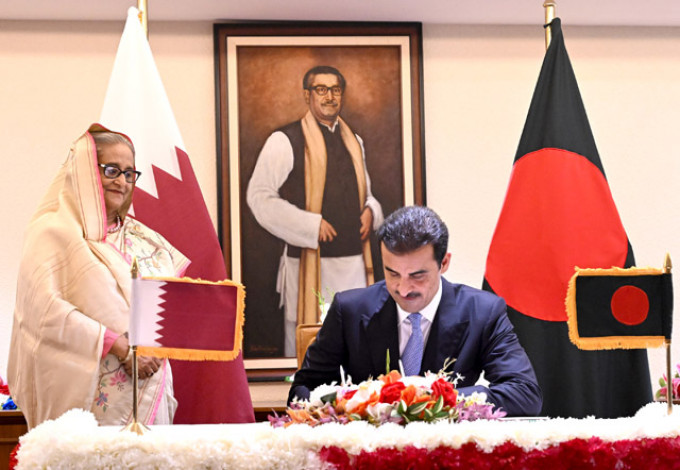China is seeking to replace US as the leading world power and remake the international system in its illiberal image, but can they do it?
Jessica Chen Weiss, an author and China expert at Cornell University, writing in The New York Times (NYT) said that President Xi Jinping of China has vowed to thwart what he views as US-led efforts to "contain, encircle and suppress" China and has said, "capitalism will inevitably perish and socialism will inevitably triumph."
However, most Communist states have collapsed, and the Chinese leadership fears being next. Moreover, China's economy today is more capitalist than Marxist and highly dependent on access to world markets.
China has fed these fears by building up its military, partnering with Russia, pressing disputed territorial claims, and with its own rhetoric.
But such ideological proclamations are in part motivated by insecurity. China's long-term ambitions are difficult to know with certainty, and they can change. But it is far from clear that it can -- or even seeks to -- replace the United States as the world's dominant power, said Weiss.
Xi and the Communist Party of China (CCP) apparently see the United States as trying to keep China perpetually subordinate and vulnerable, opposing whatever China does or advocates in an international system that Beijing believes favours the United States and developed democracies.
However, China seems more intent on modifying aspects of a system under which it has prospered -- making it safer for autocracy -- rather than replacing it, reported NYT.
Xi often couches this effort in his political slogans like the "China dream" and a "shared future for humankind." But there is a continuing debate in China over what these visions really mean and what costs and risks China should accept in seeking global leadership.
US concerns often centre on the legitimate fear that China could attack Taiwan. But despite menacing Chinese military exercises meant to deter the self-ruled island from moving closer to formal independence, many experts believe that Beijing still prefers to achieve its longstanding objective of "peaceful reunification" through measures short of war, said Weiss.
China could lose in war and face international sanctions and supply chain disruptions. These would be economically and politically devastating, jeopardizing Xi's prime objectives of regime security, domestic stability and national rejuvenation.
Doubts are growing that China, facing economic headwinds and a shrinking population, can achieve its goal of surpassing the United States as the world's largest economy, let alone other metrics of global leadership, reported NYT.
There is broad recognition in China that it remains militarily, economically and technologically weaker than the United States and that further modernization depends upon continued access to global technology, capital and markets within a stable economic order, said Weiss.
Undoubtedly, China -- whatever its trajectory -- poses a huge and complex policy challenge for America. But exaggerating fears of an "existential struggle" increases the likelihood of conflict.
The United States must continue to discourage and hedge against more threatening Chinese behaviour, including bolstering Taiwan's capacity to resist coercion, reported NYT.
READ ALSO:










